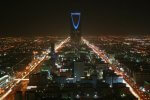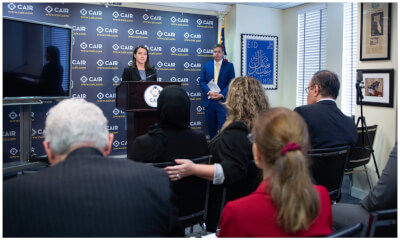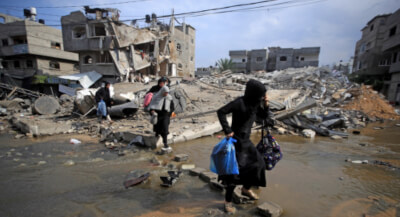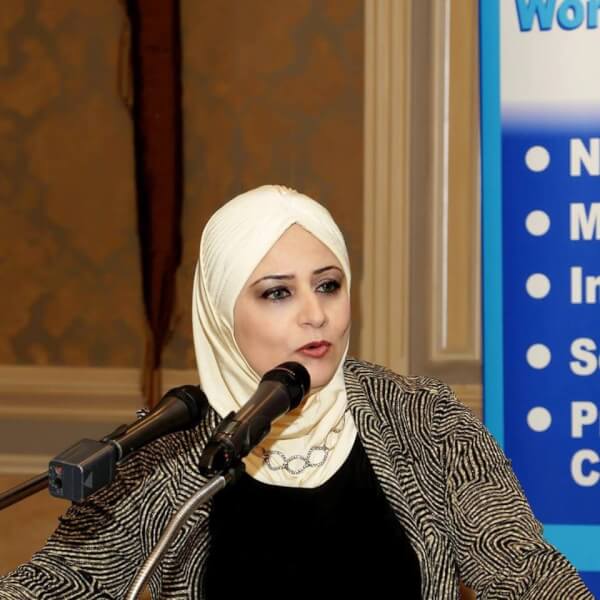Muslims hold Science and Tech convention Sept. 10 Kazakhstan
Muslim world’s first science & tech summit convenes Heads of State and senior officials from 57 nations to tackle health, climate change, water and food security challenges
This week the largest ever meeting of Islamic nations concerning science and technology will take place in Kazakhstan (Sept 10-11). The summit will convene over 50 Government Ministers and Heads of State to discuss implementation of national policies that address food, water, health and climate change challenges using science and technology. Confirmed attendees include the President of Pakistan, Mamoon Hussain and President of Bangladesh, Abdul Hamid. Other countries represented by senior Government Ministers include Malaysia, Nigeria, Jordan, Lebanon, Iraq and Libya. The summit is organized by the Organization of Islamic Cooperation (OIC), the world’s second largest intergovernmental body after the UN.
The end-goal of the summit is to build new “knowledge-economies” of the future by having Muslim majority nations – all 57 of which will be represented at the summit, commit to increasing investment in science and technology.
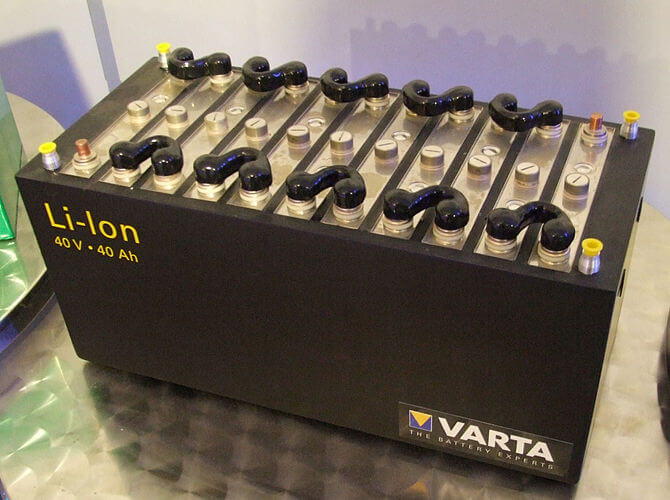
Challenges the OIC Science and Technology Summit is designed to address:
- Climate change and the consequent desertification, drought and degradation of land and water;
- The dangers of rising young populations across Muslim nations with dwindling employment opportunities;
- Increasing scientific achievement and output in the Islamic world so that the Muslim world can better compete with West in scientific innovation.
National policy proposals:
The OIC Science and Technology Summit is designed to facilitate agreement amongst the OIC’s 57-member states on national policies pertaining to investment and support for science and technology. Final policy proposals have been informed by the contributions of one hundred and twenty scientists from across the Islamic world and are as follows:
(a) Tackling Climate Change:
– Set up OIC Advisory Group on climate change with experts drawn from the OIC’s 57-member states. A first step for the group would be to prepare “a detailed plan of action including mitigation options”.
– Prepare “national policies for effective planning and management for the protection and restoration of ecosystems, including the marine environment.”
(b) Energy:
– “Reduce greenhouse gases by targeting a renewable energy share of at least 10% in national energy mix of OIC States by 2025”
– “Design and develop energy storage systems such as fuel cells (5 MW for 2 hours) and batteries (such as Lithium Ion and Vanadium Redox) for small storage applications”
– “Move towards high efficiency electricity generation systems (48%-60%) based upon super critical and ultra-super critical coal based plants (using high pressure / high temperature boilers), coupled with clean coal technologies”.
– Promote research to design “large scale storage technologies, such as covering peak demands and improved power quality and frequency regulation”.
(c) Space exploration and astronomy:
– Establish a Center for Space Technologies. This may lead to an Inter-Islamic Space Agency, focusing on projects from space launch systems to manned vehicles;
– “Design and launch small satellites singly or jointly, for elegant experiments in low orbit”;
– “Jointly design and launch remote sensing satellites for observation, crop estimation and disaster management, rescue at sea, and weather prediction”.
– “Consider establishing an OIC Communication and Global Positioning System/Regional Navigation Satellite System (GPS, RNSS)”.
– Create 3-4 ground-based 4m telescope observatories using adaptive mirrors and laser ‘guide stars’ in different OIC regions.
(d) Health:
– Raise health financing to a minimum of 10% of national budgets of all 57 OIC member states by 2025 and allocate nearly half to cover essential healthcare and financial risks.
– Train the health workforce, especially paramedics and technicians, to reduce maternal mortality ratio to less than 70 per 100,000 live births, neonatal mortality to 12 per 1,000 live births, and under-5 mortality to 25 per 1,000.
(e) Big Data:
– Connect all 57 OIC member states through a secure, high-speed intra-OIC network.
– Ensure faster transition to e-government for faster and more transparent decision making”
(f) Education:
– increase allocation for all tiers of education to a minimum of 8% of annual national budgets;
– Skills in ICT and digital technology must be made compulsory at all tiers of education, especially in high schools.
– “10 leading OIC member states shall consider doubling their annual scholarships and allocating quotas for students from the least developed countries”
(g) Increasing Research Spending:
– Increase the share of member states in global scientific output (publications and patents) by 100% in the next ten years.
– Double the number of R&D workers (all levels of scientific manpower, including certified technicians) per million population.
– Increase the share of high technology goods and services in the economies and trade of member states, aiming for 10% by 2025.
– A minimum of 50 Muslim world universities for inclusion among the top 500 globally by 2025.
(h) Pre-empting food shortages
– Set up National Gene Banks for conservation and exchange of PGR (plant genetic resources) with research centres in member states.
(i) Protecting against water shortages:
– Prepare national water budgets at the ‘local’ levels, supplemented by monitoring of sub-aquifers, glaciers, and loss in canals.
(j) From Physics to Nanomaterials:
– Invest in better physics centres in OIC Member States to enable them to grow into ‘Mother Institutes’, focusing on specific groups of activities, which can be shared by other countries.
– Expand research in fuel cells and biotechnology, genomic and proteomics studies;
The OIC Assistant Secretary General for Science and Technology (and former Ambassador of Pakistan to Saudi Arabia), Ambassador Naeem Khan, said “there is a pressing urgent need for this Islamic world summit themed on investing in science and technology. The future welfare of the Muslim world depends upon it.”
“As more people in the Islamic world emerge out of poverty, energy demand is increasing. This is being aggravated by climate change, with many OIC countries inhabiting climate-sensitive regions already facing desertification, drought, degradation of land, water and of the marine environment and fisheries.”
“In addition, several studies have shown a link between climate change and the subsequent effect on drought, food prices and the outbreak of conflict.”
“Faced with these emerging threats, the Muslim world must invest in the core scientific and technological tools to generate solutions.”
The OIC Secretary General, HE Dr. Yousef A. Al-Othaimeen, said “Islam lays special importance on seeking knowledge. The Quran’s first injunction was to ‘Read’. References are frequently made in the Quran to those who reflect and contemplate. And over a thousand years ago, algebra, astronomy, geography, medicine and industrial chemistry were all pioneered across the Islamic world for nearly half a millennium.
“That is precisely why part of the inspiration behind the OIC’s first ever Science and Technology summit was Islam’s own ‘golden age’ of science.”
“Rather than seeing science as an alien doctrine that threatens Islamic traditions, the Islamic world must re-orient its perspective by reclaiming science as its own. The task at our upcoming summit will be to capture this spirit, and reinject it into the Muslim world.”
OIC Background:
The OIC was founded in 1969 and is the second largest inter-governmental organisation in the world, with 57-member states from across the Islamic world.
The organisation is “the collective voice of the Muslim world” and is composed of the following three organs:
- Islamic Summit: the supreme authority of the Organization, composed of Heads of State and which convenes every three years.
- Council of Foreign Ministers: which meets annually for the implementation of general policy.
- General Secretariat: the OIC’s executive organ, entrusted with the implementation of the decisions taken by the aforementioned two bodies.
Affiliated OIC organisations include:
- The Islamic Development Bank (IDB): set up by the OIC in 1973. IDB tripled its authorized capital to $150 billion in 2013 to better serve Muslims globally.
- Islamic Educational, Scientific and Cultural Organization (ISESCO) established in 1979.
- COMSTECH: The Committee on Scientific and Technological Cooperation of the OIC, which on September 2017, convene a summit themed on advancing science and technology in the Muslim world, in Astana, Kazakhstan.
International engagement and affiliations:
- On 27 June 2007, the-United States President George W. Bush established an official US envoy to the OIC to “listen to and learn from representatives from Muslim states, and share with them America’s views and values.”
- The OIC has permanent delegations to the United Nations and the European Union.


- Israelisnipers shooting and killing hospital workers in Gaza - December 11, 2023
- CAIR Condemns Israeli Executions of Wounded, Unarmed Palestinian in West Bank - December 11, 2023
- Arab and Muslim American voters face a “simple choice” between Biden’s inhumanity and Trump’s edgy politics - December 9, 2023














